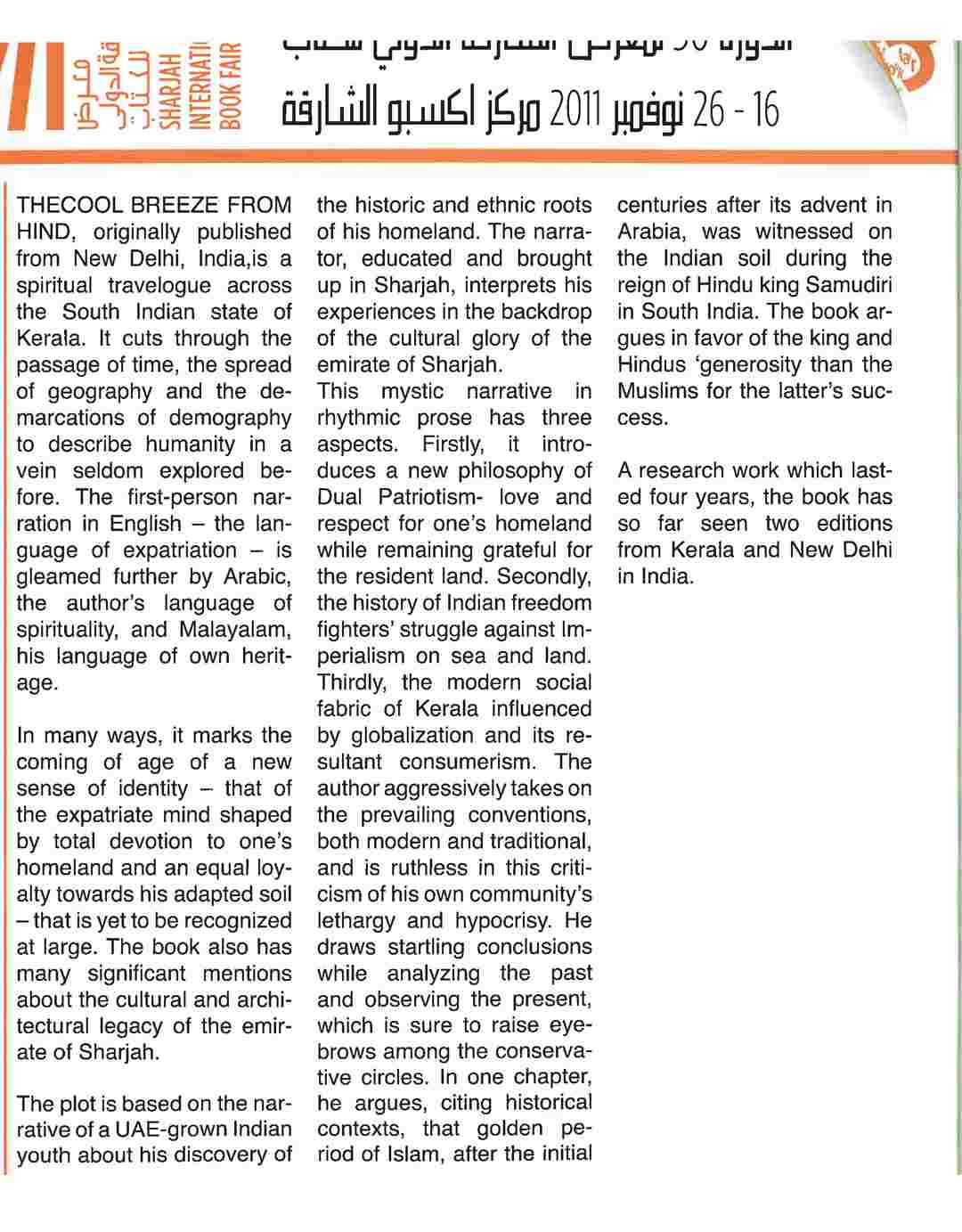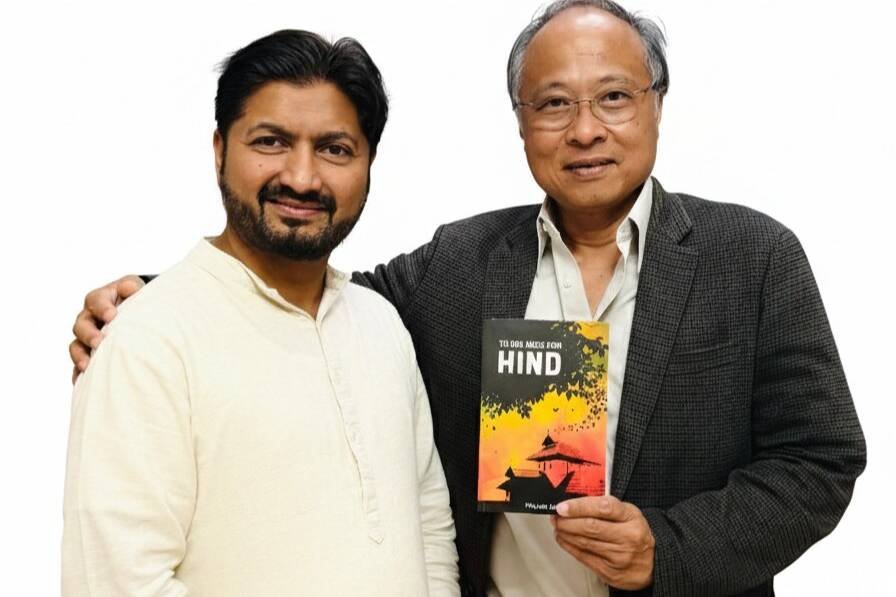Sharjah Intl book Fair newsletter on the mystic travelogue exploring Kerala’s cultural roots through a UAE-raised Indian’s journey.THE COOL BREEZE FROM HIND, originally published from New Delhi, India, is a spiritual travelogue across the South Indian state of Kerala. It cuts through the passage of time, the spread of geography and the demarcations of demography to describe humanity in a vein seldom explored before. The first-person narration in English – the language of expatriation – is gleamed further by Arabic, the author’s language of spirituality, and Malayalam, his language of own heritage.
In many ways, it marks the coming of age of a new sense of identity – that of the expatriate mind shaped by total devotion to one’s homeland and an equal loyalty towards his adapted soil – that is yet to be recognized at large. The book also has many significant mentions about the cultural and architectural legacy of the emirate of Sharjah.
The plot is based on the narrative of a UAE-grown Indian youth about his discovery of the historic and ethnic roots of his homeland. The narrator, educated and brought up in Sharjah, interprets his experiences in the backdrop of the cultural glory of the emirate of Sharjah.
This mystic narrative in rhythmic prose has three aspects. Firstly, it introduces a new philosophy of Dual Patriotism – love and respect for one’s homeland while remaining grateful for the resident land. Secondly, the history of Indian freedom fighters’ struggle against Imperialism on sea and land. Thirdly, the modern social fabric of Kerala influenced by globalization and its resultant consumerism. The author aggressively takes on the prevailing conventions, both modern and traditional, and is ruthless in this criticism of his own community’s lethargy and hypocrisy. He draws startling conclusions while analyzing the past and observing the present, which is sure to raise eyebrows among the conservative circles. In one chapter, he argues, citing historical contexts, that the golden period of Islam, after the initial centuries after its advent in Arabia, was witnessed on the Indian soil during the reign of Hindu king Samudiri in South India. The book argues in favor of the king and Hindus’ generosity than the Muslims for the latter’s success.
A research work which lasted four years, the book has so far seen two editions from Kerala and New Delhi in India.
(An edited version of the original article titled “A Tale of Twin Love,” first published in the Sharjah International Book Fair 2011 Newsletter.)

Mujeeb Jaihoon
Mujeeb Jaihoon, reputed Indian author, explores themes of universal love, deeply embedded in a disruptive spiritual worldview.
Related Posts
Jan 20 2026
Duke Uni Academic Lauds Jaihoon’s Epic Tale of Malabar’s Resistance
The Cool Breeze from Hind earns high praise from Engseng Ho, prominent…
Sep 18 2025
‘The Maestro of Mercy’ Tops Best-Seller Ranking
The unexpected rise of Jaihoon's best-selling tribute signals the new…
Sep 08 2025
The Maestro of Mercy Launched at Sri Narayana Guru Jayanti
Based on the life of Shaykh Muhyiddeen al-Shadhili, Jaihoon' book was launched…
Jul 10 2025
The Maestro of Mercy: Mujeeb Jaihoon’s Soulful Tribute to Kerala’s Hidden Saint
Islamic Voice reports on 'The Maestro of Mercy', Mujeeb Jaihoon's deeply moving…




Reading The Cool Breeze from Hind felt like standing at the crossroads of civilizations, listening to the echoes of ancient wisdom. Jaihoon writes not just with intellect, but with heart—inviting us to pause, feel, and reflect on the unseen winds that shape our world. This novel isn’t just poetic—it’s soulful. His metaphors whisper a nostalgia for cultural depth, and his prose refreshes the reader with a quiet reverence for India’s intellectual spirit. As someone passionate about language and education, I found it a moving homage to the enduring influence of Indian thought.